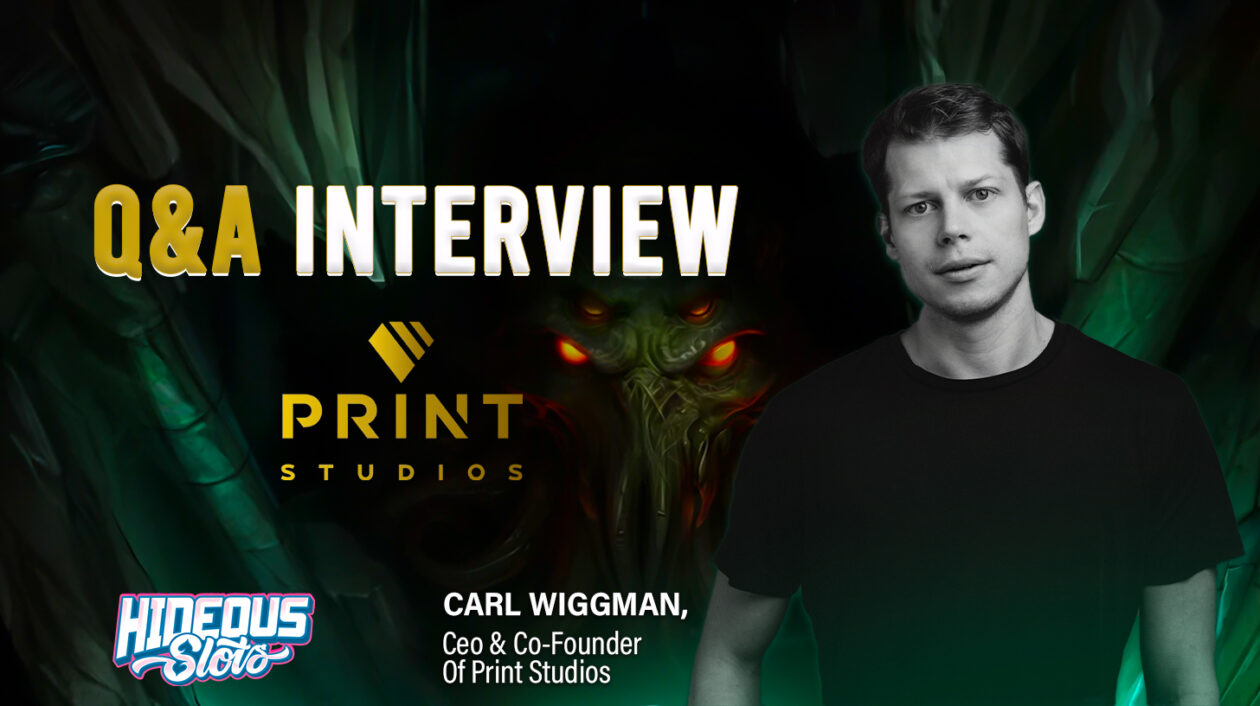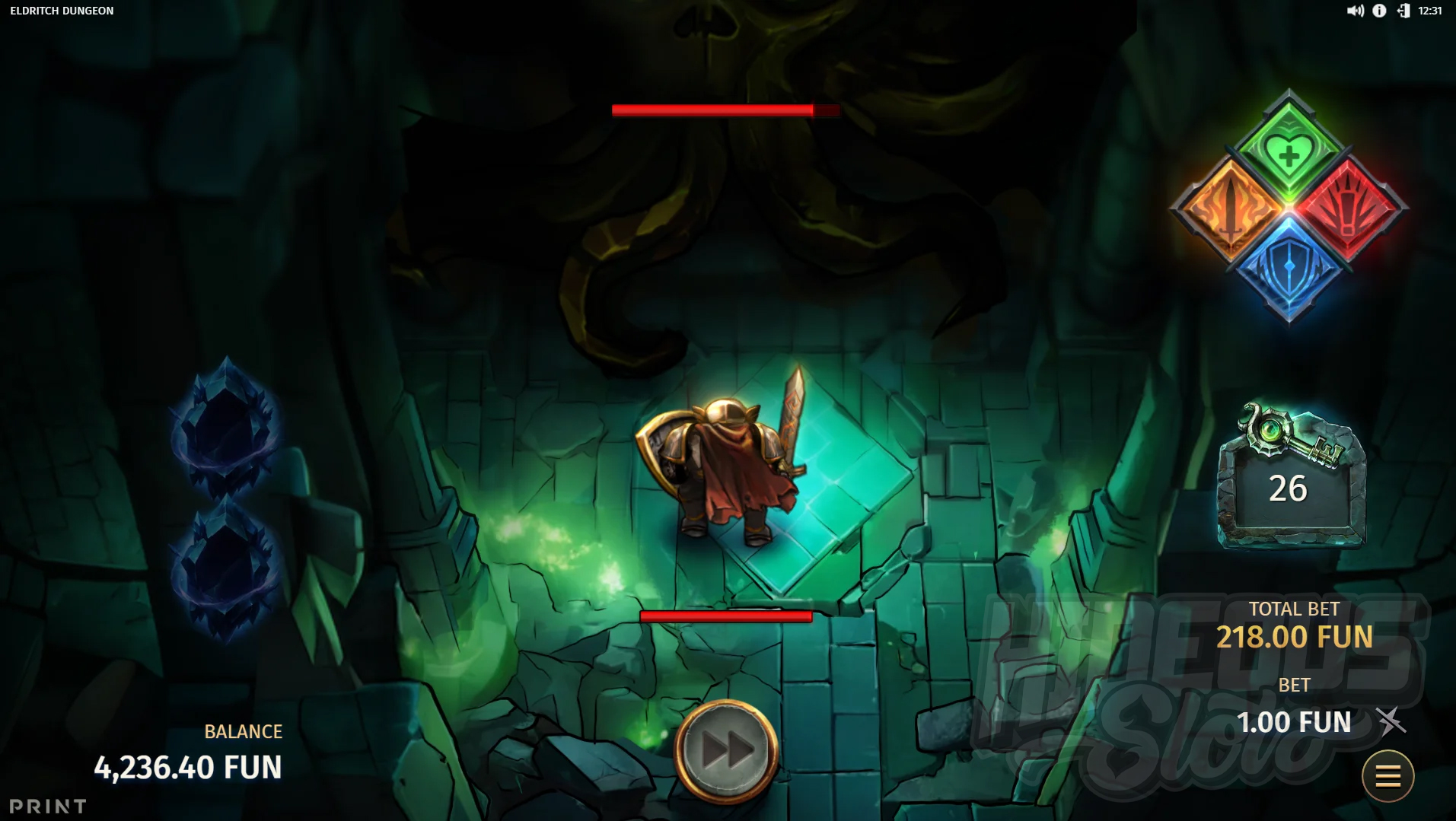Interview
Interview with Print Studios
9 Sep 24 Mark Bowley
More News & Blog
Quick Picks: Slots
Our 5 Favourite Anime-Themed Slots
4 Mar 26
Quick Picks: Slots
Top 6 Motorsports-Themed Slots for F1 Fans
25 Feb 26
Blog
Luck vs. Skill in Online Gambling
20 Feb 26
Quick Picks: Slots
7 Slots to Celebrate Pancake Day
16 Feb 26
Quick Picks: Slots
Best Winter Sports Slots Inspired by the Olympics
9 Feb 26

Interview with Carl Wiggman
Print Studios have rapidly evolved from a lesser-known developer to a standout name; first coming onto the scene with Book of Destiny, which subtly but effectively stood out with its differences from the regular ‘book-game' format.
Since then, Print Studios have marched onwards with a steadfast determination to stick by their ambition and make gambling more fun than it ever was. Each project they work on is ambitious, and their determination to make a difference is unshakeable.
One particularly interesting element of some of Print Studios' releases is the element of gamification in releases like Reapers, Cash Defense and Eldritch Dungeon. Gamification aims to incorporate game design elements – or video game-like features – into the world of slots.
Gamification is something rarely attempted, and difficult to pull off, as we’re sure Print Studios would agree.
We had the pleasure of talking to Carl Wiggman, CEO of Print Studios, to find out the inspiration behind some of these titles and why gamification is so interesting to them.

Eldritch Dungeon Dungeon Battle
Mark: Thanks for talking to us Carl! Are you a fan of video games yourself and if so, which games do you play?
Carl: Oh yeah, love all kinds of games (gambling, video, board, you name it!).
Too many to count over the years of course, currently playing a bit of path of exile and chess solo along with various CO-OP games when possible.
In 2 weeks I'm gonna see The International, the best sports tournament of every year, live in Copenhagen.
Mark: The idea of gamification in slots is one that I find very interesting, yet it can’t be without its challenges. What do you think are the key challenges to making a slot with elements of a video game?
Carl: Great question, to be honest, it’s something thats been occupying my mind the last 10 years or so.
The first challenge to tackle is always ‘why?'. If the mechanic is not necessary for upgrading the actual gambling excitement, it shouldn’t be in a slot.
If you can get past that, you gotta make it intuitive – which is more challenging because you can’t rely on familiarity like most slots do.
Here the theme plays a big part; if the player hasn’t seen any similar mechanic before, the story needs to convey the goal.
Because you are treading so much new ground and also want to marry multiple mechanical genres, the games tend to be more feature rich; usually for good reason.
Then you gotta balance it all out in a state of the art math model, which can be super tricky.
If the player hasn’t seen any similar mechanic before, the story needs to convey the goal.
Mark: Reapers was a delight to play and something very different for you. The gameplay with a video game-style tutorial plus the ability to progress through the levels made the experience unforgettable. What was the development process for that game like?
Carl: It was a ride! Fun, beast of a project.
We started with the idea for the layered grid mechanic, then got to the Reapers from there, and then the whole story and everything.
The amount of testing and iterations was staggering, so many parts that easily could turn out poorly.
Also, we took help from a sci-fi author for the dialogues to max out the immersion and a professional keyboard player for the solo in the final stage of bonus.
Mark: Video games are very skill-based, do you think there will be a future where gamified slots allow slight elements of skill while adhering to regulatory requirements?
Carl: It's been tried many times and new shots are always being taken on it, so far most successfully with Slingo I believe.
There’s a few hurdles you gotta get around, such as making the luck and the skill harmonious (would never work as an FPS for this reason), avoiding cheaters, making it a valuable for both good and bad players but that’s just the beginning.
After that, you gotta make something that is actually fun, and this is where most fail.
Poker and BlackJack are the two examples of hitting it truly right (Slingo skill is barely skill to be honest), so it’s not impossible, but it's not easy.
Mark: How do you ensure that the gamification elements in slots like the mini-game seen in Huntress Wild Vengeance remain fun while adhering to the principle and requirement of randomness?
Carl: Trust the skill of the team and just keep at it til it feels right.
If we had more time we’d make it better, but resources are always limited as a young company.
The important part is making it feel like a reliable mechanic, like there’s a real machine underneath, rather than some bs animation that has no bearing on what actions the player took.
Mark: Cash Defense made quite the impression on me, and hopefully a lasting impression on players as well. I remember sitting in ICT lessons at school playing Bloons on Miniclip. Was the aim of the different Arrow Tower and Cannon Towers in this slot an attempt to mimic the strategic decision-making aspect of games?
Carl: Yeah definitely, and of course we wanted to go further with frost towers, poison towers and whatnot that we’ve all come to love from TDs.
Again, there’s always a limit to the budget and before we make things too complex we wanted to see if there was interest at all.
Glad to say there was!
Trust the skill of the team and just keep at it til it feels right
Mark: What is your perceived reception to the gamification of slots? Are they hit or miss, or do they garner quite a following?
Carl: It’s a good question, as they cost a bit more but so far haven’t been our absolute top performers, although they’ve always been solid.
Talking about Reapers, Cash Defense, Eldritch Dungeon and the like; from my perspective, as long as the game does something to get people hyped and look out for Print Studios, I’m happy.
Mark: Eldritch Dungeon is a notable new title with a progression tree reminiscent of Slay the Spire with fantasy elements and gameplay that feels like turn-based combat. Which games were the key inspiration behind this?
Carl: Hmm there were many.
As a foundation for the setting, Baldurs Gate and the like has to be mentioned. Also, Loop Hero and Darkest Dungeon came up in moodboards for look and feel.
Finally, I had just finished the whole Cthulhu mythos from H.P. Lovecraft, which obviously played a part.
Mark: There are a lot of studios that care less about the creative process and more about making ‘standard slots’. Why do you think it’s important to make the games you love making, even if it isn’t necessarily the most commercially safe route?
Carl: I think it’s the philosophy we’ve had from the start; bands should be making games, not corporations.
In a band, you have to do what inspires you, it's the only way to justify the effort. And what inspires you usually is what you like yourself.
For that reason we’ve only hired people that consider it more rewarding to work on a difficult project that result in awe, rather than an easy project that make the same amount of money but delivers an average experience.
Mark: Lastly, what are your favourite video games? And do you still find time to game with your undoubtedly demanding role?
Carl: Again too many to list to be honest. Anything deep and well-made and I’m in I suppose.
If it ain’t deep, there better be a wager involved somehow to keep me interested.
I think working from home helps with finding more time for gaming, we also keep meetings at a minimum at Print so there’s no downtime between the daily objectives.
It could also be the fact that I don’t have kids but barring a world-wide apocalypse, gaming ain’t going anywhere for me.
Latest News & Blog
Quick Picks: Slots
Our 5 Favourite Anime-Themed Slots
Back in the day, openly admitting you liked anime might have got you some funny looks or raised eyebrows at school.
Terms like “weeaboo” (or weeb, for short) were meant as insults to those who were maybe a little too into Japanese culture, anime, and manga.
4 Mar 26
Quick Picks: Slots
Top 6 Motorsports-Themed Slots for F1 Fans
If you’re counting down the days until the next F1 weekend, spinning motorsports-themed slots are the perfect way to spend your time, tapping into that same competitive spirit.
25 Feb 26
Blog
Luck vs. Skill in Online Gambling
In life, there are some debates that are just timeless; does pineapple belong on pizza, were Ross and Rachel actually on a break, and the big one: does luck or skill play a bigger role in gambling?
20 Feb 26
